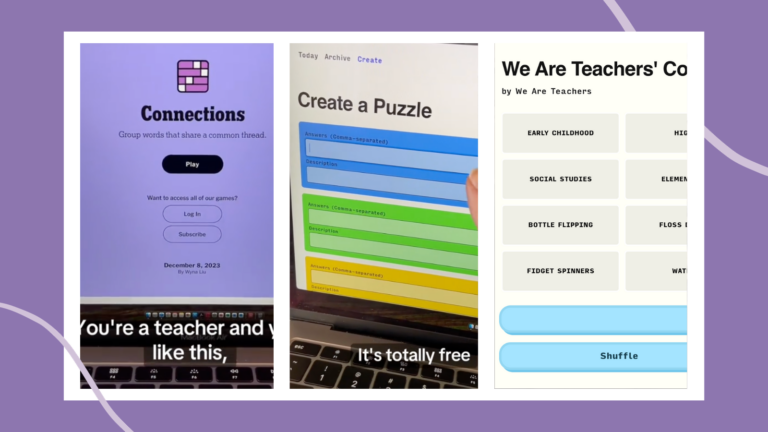Like many teachers, I send and receive countless emails night and day. It’s a skill I’ve really taken for granted—being able to write a polite email in order to obtain assistance, clarification, or communicate a thought.
It wasn’t until I received a message from one of my students that I realized how much I take this skill for granted.
I’m sure you’ve received a similar email from a kid. The student wanted clarification on a grade he or she had earned on an assignment, but requested that clarification in ALL CAPS with infinite question marks and exclamation points!!???!!???!
My initial reaction: “What on earth makes you think you can talk to me that way? If I wrote an email like that to one of my professors in college…”
I realized later, however, that the student probably didn’t understand that emailing a teacher is different than texting your friends. I take great pride in my students; I tell them every day that I believe they are the best.
But I knew we couldn’t be the best if we were emailing adults with “shouting” voices, demanding vocabulary and improper punctuation.
So I decided to do something about it.
The next day, I spoke to the student who had sent me the email, and we had a quick chat about the problem in the email, and the abundant punctuation and “shouting”. The student realized how the email sounded, but I knew I needed to also teach the desired alternative.
We opened a whole-class discussion by explaining that I was going to give them a tool for middle school—which had them on the edge of their seat, because middle school is that fast-approaching magical place with electives and dances.
I asked them to open their school email, select “mail”, then click “compose”, and type a teacher’s name in the “To:” space. Meanwhile, I modeled on my own laptop, projecting on the whiteboard each step. I chose a colleague for myself to write an email to, whom all my students know and love, and began typing, “Hey Miss X! What’s up?! Y isn’t my test in the gradebook?!?!?! I did it TUESDAY but it says it’s MISSING!!!”
Then I asked my students what was wrong.
I got a variety of responses: “It’s like you’re yelling at her!”, “You’re being so demanding!” “Why do you have so many question marks and exclamation points?”
Then I encouraged students to think even more deeply about why my email seemed the way it did, “You’re saying you did it Tuesday, it’s Wednesday. She may not have it graded yet.” “It sounds like you’re upset or mad.” “That’s not how you spell “why”.”
The next step was talking about what polite email looks like.
I reminded my students that school is their job, so school-related emails should be like business letters. I explained that you always start with “Dear Mr./Ms./Miss/Mrs. ____________.”
Next, we discussed why a student might email a teacher, focusing primarily on questions, and reminding students that we don’t email teachers to ask what they’re doing this weekend. (You’re welcome.)
The conversation naturally led to talking about advocacy and responsibility. I explained advocacy as a facet of responsibility; standing up for yourself, but doing so respectfully. I told my students they could email a teacher if they don’t understand expectations for an assignment, or if they don’t understand why they earned a grade.
We also talked about how caps lock has a tendency to read like “yelling”, and that excessive punctuation is just unnecessary. Correct spelling is a must. I closed my email with “Thank you for your help!” and signed my name. The class agreed this newly composed message was much more respectful and polite.
I further explained in order to be self-advocates, I would be asking my students to check their own grades once a week for the rest of the quarter.
I know it’s just email, but my students felt empowered.
I became more approachable and more transparent through this lesson, while my students became more powerful, equipped and ready for the world.
Later that evening, I received an email from a student. A beautiful, polite email asking for clarification on a history assignment. The next night, I received another beautiful, polite email from another student explaining that earning “high honor roll” was one of his or her goals, and that he or she would like help achieving that goal before the end of the quarter.
The emails have continued to trickle in since this short, fifteen-minute lesson. I have yet to receive one that wasn’t clear, concise, and respectful. A colleague received an email today from one of my students: another polite inquiry.
This lesson provided my students with skills, empowerment, and confidence. That will continue to be a life-long tool. I couldn’t be more proud of the turnaround in communication with my students.

